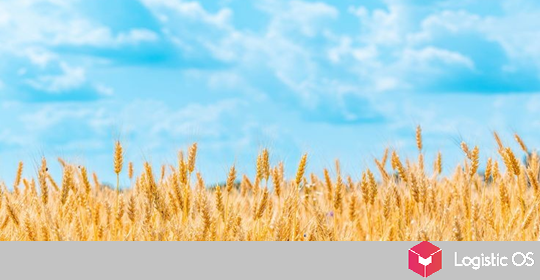This season, despite difficult weather conditions, EU countries are expecting an increase in harvest.
The total area under cereals is likely to decline this year. If last season it was about 50.6 million hectares, then this season it may decrease to 50.3 million hectares.
However, as for the harvest, it may even grow.
The European Commission expects that grain production in the European Union this year will amount to about 278.5 million tons, while last year it amounted to 269.8 million tons.
This growth is expected despite the fact that in many countries that are part of the European Union, weather conditions are far from being the best this season.
For example, harvest declines are more than likely in Germany and France, as well as in countries such as Hungary, Poland, Slovakia and Bulgaria.
Germany and France, for example, suffered significantly due to heavy rains that occurred last fall and caused the deterioration of winter crops in many fields, which simply flooded.
Which countries can expect a high harvest?
At the same time, these losses can be compensated by good harvests in a number of other EU countries. In particular, we are talking about Spain, Denmark, Sweden and Finland.
Production there fell sharply last year, also due to weather conditions, and now there is every reason to expect an increase compared to the previous season.
Experts also expect that higher yields may be in Romania.
By the way, the problems that producers of winter crops have recently had to face have already led to the fact that the emphasis of farmers began to shift towards spring barley, oats and corn.
As for winter wheat, the losses incurred by the largest producing countries will be difficult to make up.
The European Commission expects EU wheat production to fall by 5.4 million tonnes this season to just 120 million tonnes.
This is the worst result since 2020, when EU countries also had to deal with severe drought.
At the same time, experts are worried not only about the volume of harvest, but also about the quality of the grain.
European countries are expecting a dry summer, and if we add to this the limited use of fertilizers and pesticides due to their rise in price, the quality of European grain may deteriorate significantly.
This may, among other things, lower the rating of European grain on the world market.
However, as is usually the case, the weather will play a decisive role, experts say. If it is favorable, then perhaps farmers will be able to avoid new losses and even compensate for losses from rains.

